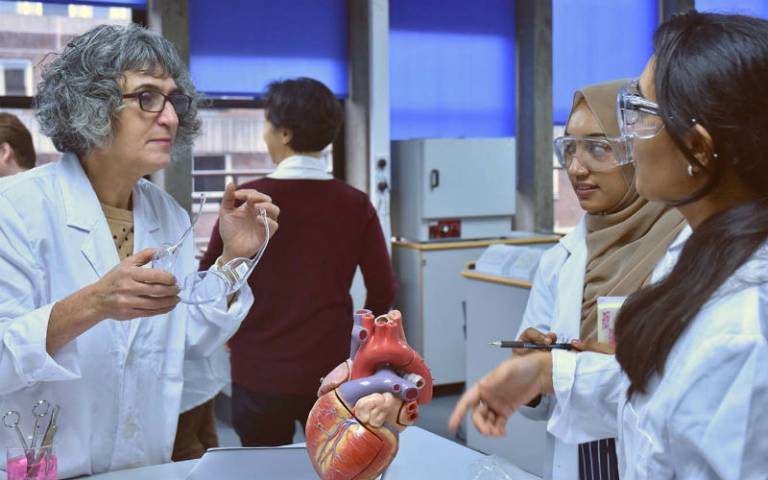“Make it more relevant and practical”: young people's vision for science education
5 December 2022
Over 70% of young people in England say that linking the science curriculum more to their everyday life would improve their learning and engagement in the subject, finds a new report from IOE, UCL’s Faculty of Education and Society.

The report, ‘“Make it more relevant and practical”: Young people’s vision for school science in England’, identifies four key improvements which young people felt could have made a difference to their experience of science education when they were still in school.
The ASPIRES 3 study collected national data from over 7,600 young people aged 20-22 years old. IOE researchers gathered young people's views through multiple-choice questions, open-ended survey responses and in-depth interviews.
While many young people agreed that learning science is important, 20% felt that school had put them off science. The study asked participants to reflect on what could improve this picture for younger cohorts.
Only 5% of young people involved in the study said no improvements were needed to improve their experience of school science education, while 72% of young people said increasing the science curriculum’s relevance was a priority for them. Young People suggest relevance could be increased using better links to ‘everyday life’, and explicit curriculum links to personal health and wellbeing, climate change and how to protect the environment.
Young people who wanted a more relevant school science curriculum were more likely to be women or live in more socioeconomically privileged areas. One participant, who chose not to study post-compulsory science recounted doing “a project about the dangers of fracking in communities and whether it should be a good thing or a bad thing.” She explained how the project “ really stuck with [her], like applying [science] to social issues,” helped make the content more memorable.
Almost 60% of young people indicated that there was a need for a greater focus on practical, experimental and problem-based learning. Young people also noted a need for more resourcing of equipment and labs, and better-quality learning experiences. This feedback was more likely to be from those who had attended comprehensive schools.
IOE Education BA student Princess Emeanuwa worked with the ASPIRES project team during a summer internship, and shared her thoughts on the project findings in this video:
The importance of teachers featured highly among participants’ recommendations for change. 41% of participants said that they would have liked “better teachers and/or more specialist teachers”. Young people explained that by “better teachers” they meant knowledgeable, passionate subject specialists who stay in post, and teachers who care about, and include, all students.
“While, luckily, the majority of my teachers fell into the good category, I think a teacher’s ability to relate to, and interact with, younger people is almost more important than their intelligence.” said one young White man, who had graduated from a STEM (Science, Technology, Engineering and Maths) degree.
The study’s Principle Investigator Professor Louise Archer explained “young people are key stakeholders in education yet too often their voices are missing within policy and curriculum reform. Our new report draws on data from over 7,600 young people, sharing their views on how to improve school science".
Links
- Read the full report
- Download the executive summary
- ASPIRES Research
- STEM Participation & Social Justice group
- Department of Education, Practice and Society
 Close
Close

